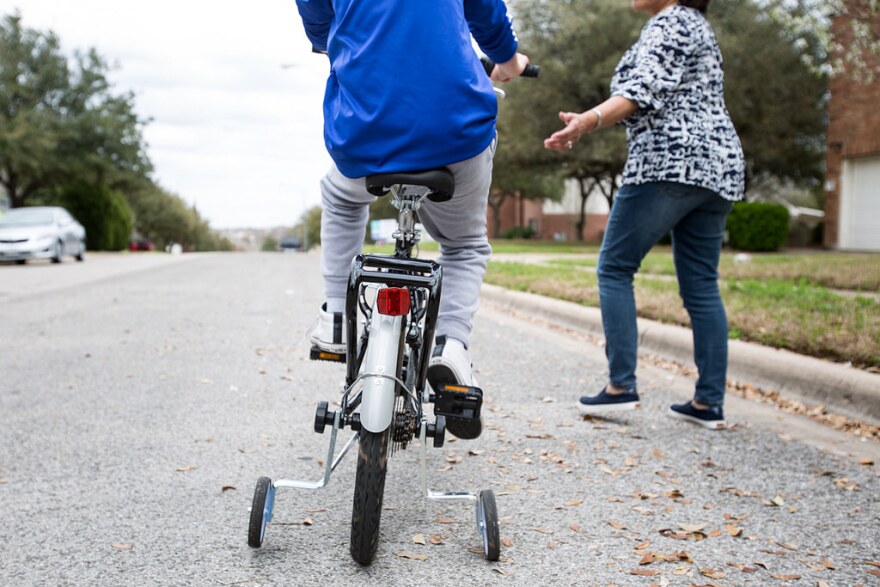Eduardo Labastida just got his first bike. It’s silver with training wheels and a frame that dips low in front of the seat to help him get on and off. His mother, Yamilet Labastida, runs alongside him in their Round Rock neighborhood, helping to push and steady him.
Eduardo pedals with all his might. Every turn is an accomplishment, because he has mitochondrial disease. The disease can make verbal expression difficult, so his mother speaks for him.
“So the first time he tried [riding the bike], it was kind of scary,” Labastida says. “He thought he was going to fall, but we were able to adjust the tires in the right way that he could feel comfortable, and then he started getting confident that he could do it.”
Mitochondria are responsible for creating the energy in our bodies. When that process is disrupted, it can cause fatigue and dysfunctions of the brain, according to Dr. Wallace Taylor with Texas Integrative Medicine. These are the hallmarks of mitochondrial disease.
Taylor says the disorder is common, but researchers are still trying to understand it.
It can cause several disabilities, including developmental delays, autism and epilepsy. That makes things like learning to ride a bike more difficult. While his older brother learned at age 4, Eduardo is learning at 13.

“Because his muscles are so weak or they’re not that strong, he doesn’t have [the] balance to be able to … coordinate with the bike,” his mother says. “He will always have to ride the bike with training wheels.”
Labastida remains hopeful about Eduardo’s life ahead. She knows not every child with the disease has the same opportunities her family has been able to provide. She says some children have trouble with everyday tasks, like eating or using the bathroom.
“So even though he has [mitochondrial disease], we feel blessed that he can be able to do these things,” she says.
Labastida says more challenges will continue as Eduardo gets older, but for now, he’s going to keep pedaling.



